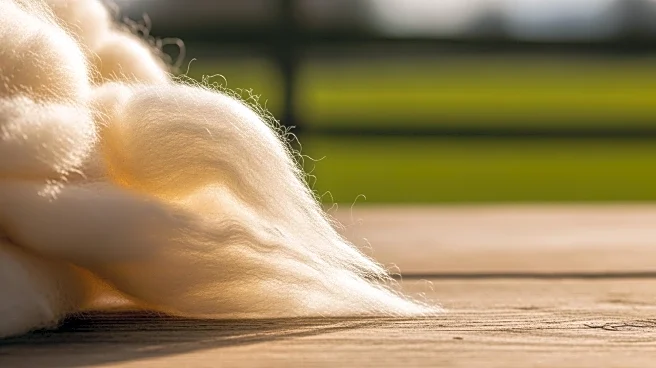What's Happening?
The Sustainable Cape Wool Standard has received approval from Four Paws, a global animal welfare organization, in a report aimed at guiding fashion brands towards ethical use of animal-derived products. The report highlights the importance of standards
in mitigating animal welfare risks and encourages brands to use the strongest available standards as a baseline. The Cape Wools Standard is one of several wool production standards recognized for meeting foundational criteria, supporting the industry's move towards more sustainable practices.
Why It's Important?
The approval of the Cape Wools Standard by Four Paws signifies a positive step towards improving animal welfare in the fashion industry. This recognition could encourage more brands to adopt ethical sourcing practices, potentially leading to broader changes in the industry. As consumers become more aware of animal welfare issues, they may demand greater transparency and accountability from brands, driving the shift towards sustainable and ethical fashion. The report also highlights the challenges within supply chains, emphasizing the need for continuous improvement in animal welfare standards.
What's Next?
As the Cape Wools Standard gains recognition, it may inspire other wool producers to adopt similar practices, potentially leading to increased demand for ethically sourced wool. This could drive innovation in the industry, encouraging brands to explore new materials and production methods that prioritize animal welfare. Additionally, the report's findings may prompt discussions about the role of standards in ensuring ethical practices, leading to further collaboration between industry stakeholders and animal welfare organizations.
Beyond the Headlines
The focus on animal welfare in the fashion industry raises broader ethical considerations about the use of animal-derived materials. As consumers become more conscious of these issues, they may seek alternatives to traditional materials, driving demand for sustainable and cruelty-free options. This shift could lead to long-term changes in the industry, influencing production methods and consumer preferences. The report also highlights the importance of collaboration between brands and animal welfare organizations in driving positive change.















